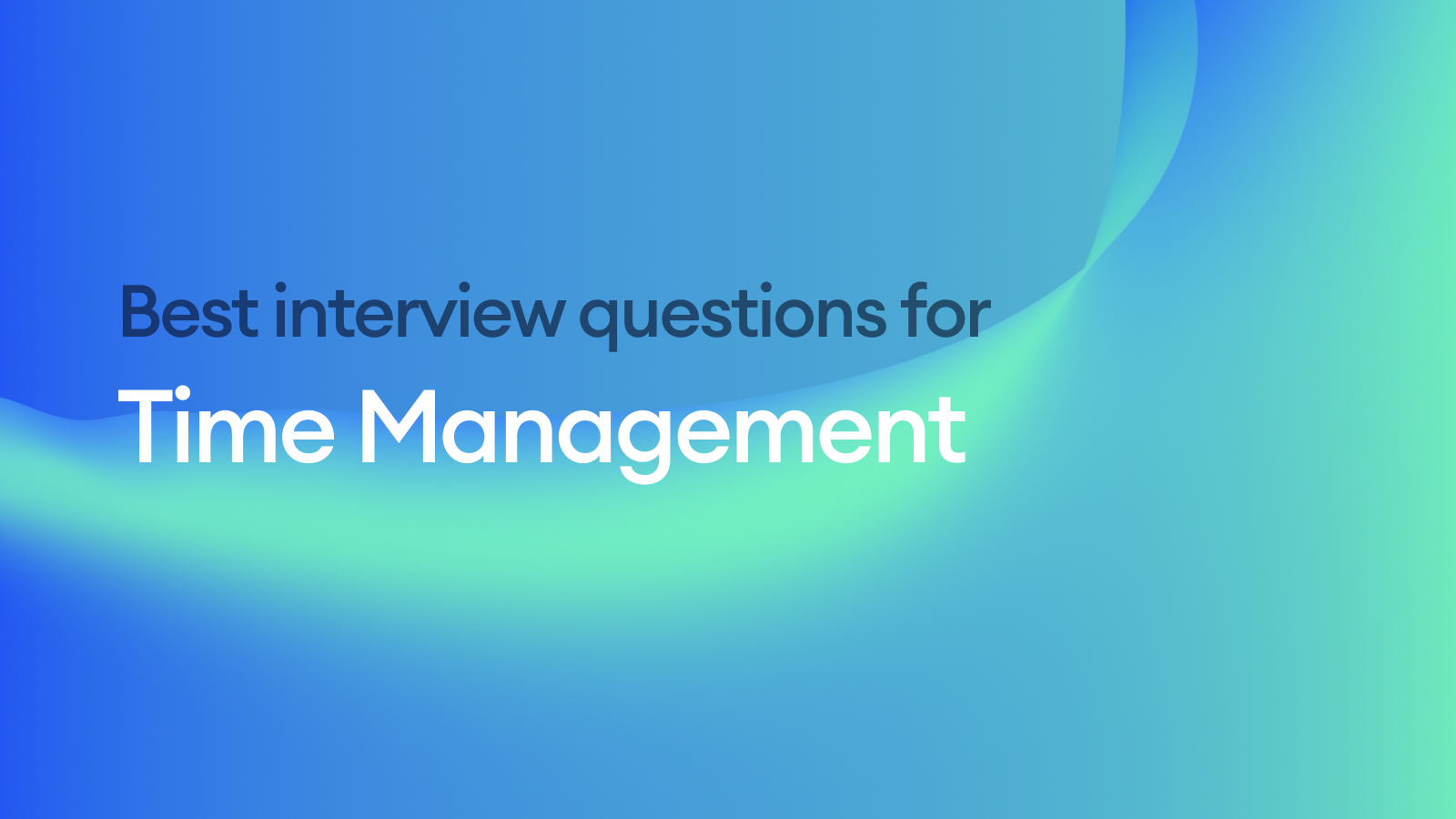Key Takeaways
- Effective Time Management Traits: Strong candidates prioritize tasks, use organizational tools, and balance workflows while adapting to challenges.
- Comprehensive Evaluation: Behavioral questions, problem-solving scenarios, and practical exercises provide insight into a candidate’s time management skills.
- Productivity and Balance: Look for candidates who demonstrate continuous improvement and maintain a healthy work-life balance to ensure long-term success.
Effective time management is a cornerstone of productivity and success in any professional role. Employers seek candidates who can prioritize tasks, meet deadlines, and maintain a balanced workflow, ensuring that projects are completed efficiently without compromising quality. Assessing a candidate's time management skills during the interview process is crucial for identifying individuals who can thrive in dynamic work environments and contribute positively to team objectives.
Time Management Interview Questions
- Can you describe a time when you had to juggle multiple tasks or projects simultaneously? How did you prioritize your responsibilities?
- How do you organize your day when you have numerous deadlines to meet? What tools or methods do you use to stay on track?
- Tell me about a situation where you missed a deadline. What happened, and what did you learn from the experience?
- How do you handle unexpected interruptions or emergencies that disrupt your planned schedule?
- Describe a project you managed from start to finish. How did you ensure it was completed on time and within scope?
- What strategies do you use to avoid procrastination and stay focused on your work?
- How do you balance long-term projects with short-term tasks to ensure all objectives are met?
- Can you provide an example of how you set and achieved your personal or professional goals within a specific timeframe?
- How do you assess the urgency and importance of tasks when deciding what to tackle first?
- Describe a time when you had to delegate tasks to others. How did you manage your time and oversee the project's progress?
What to Look for in Answers
When evaluating a candidate's responses, consider the following attributes that indicate strong time management skills:
- Prioritization Abilities: Look for evidence that the candidate can effectively determine which tasks are most important and allocate their time accordingly.
- Organizational Skills: Responses should demonstrate the use of tools, systems, or methods (such as to-do lists, calendars, or project management software) to stay organized.
- Problem-Solving: Candidates should show how they handle setbacks or unexpected changes without losing productivity.
- Self-Awareness: Look for honesty about past challenges and a clear understanding of what strategies work best for them.
- Goal-Oriented Approach: Responses should reflect a focus on setting and achieving specific objectives within set timelines.
- Adaptability: The ability to adjust plans and strategies in response to shifting priorities or environments is crucial.
- Delegation Skills: Effective time managers know when and how to delegate tasks to optimize workflow and productivity.
Tips for Evaluating Time Management During the Hiring Process
- Use Behavioral Questions: Ask candidates to provide specific examples from their past experiences where they successfully managed their time. This approach reveals real-world application of their skills.
- Assess Problem-Solving Scenarios: Present hypothetical situations related to time management and ask candidates how they would handle them. This helps gauge their strategic thinking and adaptability.
- Evaluate Their Responses for Consistency: Ensure that candidates' answers align with their resume and other parts of the interview, indicating reliability in their self-reported time management skills.
- Incorporate Practical Exercises: Consider including time management tasks or simulations as part of the interview process to observe firsthand how candidates organize and prioritize their work.
- Check for Tools and Techniques Familiarity: Inquire about the specific tools or methods candidates use to manage their time, indicating their familiarity with industry-standard practices.
- Understand Their Work-Life Balance Approach: Candidates who manage their time well often maintain a healthy work-life balance, reducing the risk of burnout and increasing long-term productivity.
- Look for Continuous Improvement: Candidates who seek ways to enhance their time management skills show a commitment to personal and professional growth.
Summary
Time management is an essential skill that directly impacts an individual's effectiveness and the overall productivity of an organization. By incorporating targeted interview questions and carefully evaluating candidate responses, employers can identify individuals who not only possess the necessary time management abilities but also demonstrate the capacity to adapt and thrive in fast-paced environments. Implementing structured evaluation techniques ensures that new hires will contribute positively to achieving business goals and maintaining operational efficiency.


